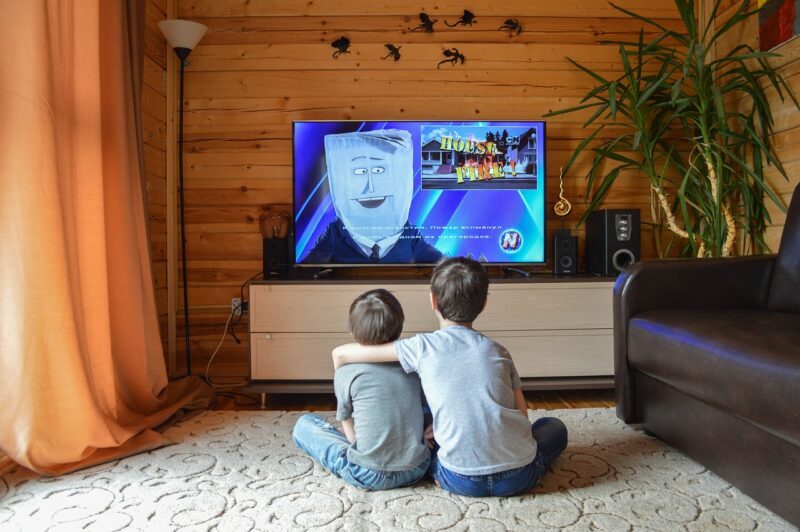Binge Alert: The TV Series That Changed the Landscape of Entertainment
November 17, 2024

Television has long been a staple of entertainment in households around the world, but in the last decade, the way we consume TV has transformed dramatically. The introduction of streaming services, coupled with the rise of ‘binge-watching’, has revolutionized the landscape of television in unprecedented ways. In this article, we will explore some of the most iconic TV series that not only sparked trends but also changed the very fabric of how we engage with entertainment.
1. Understanding Binge-Watching: A Cultural Phenomenon
Binge-watching was once a term associated mainly with marathon viewings of shows on weekends when fans would gather together for hours. However, the advent of streaming platforms such as Netflix, Amazon Prime, and Hulu has shifted this phenomenon into the mainstream. This change has led to a new way of storytelling, one that embraces deeper arcs and character development over multiple episodes.
According to a study by Nielsen, 61% of viewers reported that they have binge-watched a show, which indicates how integral this practice has become in modern culture. But what drives this behavior? The attraction of binge-watching can be linked to:
- Accessibility: With the entire season available at once, viewers have the liberty to watch at their own pace, allowing them to engage with stories without the limits of weekly air times.
- Narrative Complexity: series now have the freedom to develop complex characters and story arcs across multiple episodes, creating a deeper emotional connection for viewers.
- The Cliffhanger Effect: Many shows are designed with cliffhangers at the end of episodes, making it tempting for viewers to continue watching to resolve the tension.
These factors have collectively contributed to changing how we perceive and engage with television series, setting the stage for a new generation of programming.
2. Landmark Series That Redefined Television
Several series over the years have laid the groundwork for this digital revolution, paving the way for how we consume content today. Let’s take a closer look at a few of the shows that have redefined the television landscape:
2.1. “The Sopranos” (1999-2007)
Widely regarded as one of the greatest television series of all time, “The Sopranos” redefined the standards of TV storytelling. Airing on HBO, the show centered around mob boss Tony Soprano and his struggle to balance family life with his role in the organized crime world. Its cinematic quality, complex characters, and willingness to tackle deep psychological issues opened the doors for more cable and premium network dramas.
2.2. “Lost” (2004-2010)
“Lost” was revolutionary not only for its unpredictable storytelling and intricate plot but also for its use of flashbacks and flash-forwards that kept audiences engaged and guessing. It sparked a communal viewing experience, where fans would dissect each episode online and theorize about the complex mysteries. Its success illustrated the potential for serialized storytelling within the genre and encouraged networks to invest more in long-form narratives.
2.3. “Breaking Bad” (2008-2013)
“Breaking Bad” is a quintessential example of storytelling done right. Following the transformation of Walter White from a high school chemistry teacher to a methamphetamine manufacturer, the show captivated audiences with its character arcs, moral dilemmas, and thrilling tension. Netflix’s availability of the series allowed viewers to binge-watch before its final season aired, setting a trend for how network series could be consumed en masse and effectively driving up audience engagement.
2.4. “Stranger Things” (2016-present)
The arrival of “Stranger Things” on Netflix in 2016 marked a new chapter in streaming content. Combining nostalgia with supernatural adventure, the show rapidly became a cultural phenomenon, with fans engaging through social media, merchandise, and conventions. Furthermore, its success heralded the rise of original programming on streaming services, pushing traditional networks to rethink their strategies.
3. The Impact of Streaming Services on Traditional Television
Streaming services have democratized television production, allowing up-and-coming writers and directors to produce content without the constraints of traditional broadcasting. The consequences for traditional TV networks have been profound:
- Competition for Viewership: Traditional networks must now contend with streaming services for viewership, leading to increased investment in high-quality content.
- Shortened Seasons: Where traditional shows often have 22-episode seasons, streaming platforms have favored shorter, more impactful seasons, leading to better storytelling.
- Consumer Engagement: The ability to binge-watch has not only attracted a large audience but has also enhanced discussions across social media, building community and connection between viewers.
These factors demonstrate how the emergence of streaming services has altered not only how we consume television but also how content is produced, marketed, and valued.
4. The Future of Television
As we look to the future, it’s evident that the evolution of how we consume television is just beginning. The trend toward binge-worthy content shows no signs of slowing down, and as technology develops, we can expect:
- Interactive Content: The emergence of interactive television, such as Netflix’s “Bandersnatch”, allows viewers to influence the storyline, potentially creating a unique viewing experience.
- Continued Popularity of Limited Series: With audiences favoring tightly woven narratives, limited series with concise storytelling are likely to remain popular.
- Increased Global Influence: As platforms expand internationally, we can expect a broader representation of cultures and stories, enriching the global storytelling landscape.
Television’s landscape continues to change, fostering creativity and innovation, which ultimately enriches our viewing experiences.
Conclusion
The transformation of television consumption has been an exciting development in entertainment history. With landmark series paving the way for innovative storytelling and the growth of streaming platforms shaping how we engage with content, the future holds endless possibilities. As binge-watching becomes an ingrained part of our viewing culture, it encourages media creators to push the boundaries further, ensuring that we stay excited for what comes next.
As we reflect on these changes and their implications, it’s clear: the television series that captured our hearts and minds have not just entertained us; they have also forever changed the landscape of entertainment.






